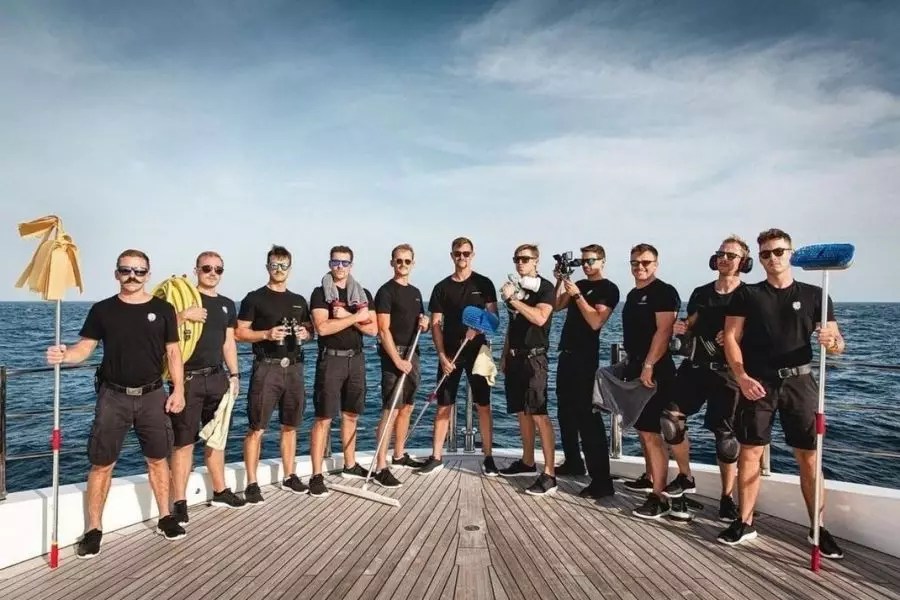
Understanding the Importance of Crew Retention
Crew retention is crucial for maintaining a stable and efficient operation within the yacht industry. High turnover rates can lead to significant disruptions, affecting both the service quality provided to guests and the morale of the remaining crew members. When experienced staff leave, the learning curve for new recruits can slow down service, resulting in unhappy guests and a tarnished reputation. Additionally, the financial burden of recruiting and training new crew can be overwhelming; costs include not only recruitment fees but also the time spent training new employees who may leave shortly after joining. A stable crew fosters a sense of familiarity and teamwork, leading to enhanced communication and collaboration among team members. This cohesion contributes to a more enjoyable working environment and ultimately reflects positively on guest experiences. Implementing effective crew retention strategies is not just beneficial—it’s essential for long-term success in the yachting industry.
Building a Positive Work Environment
Creating a positive work environment is foundational to effective crew retention strategies. Establishing open lines of communication where crew members feel safe expressing their opinions can dramatically improve workplace morale. Regular team meetings encourage transparency and allow crew members to voice concerns and share ideas, fostering a culture of inclusion. It’s equally important to promote respect among all team members, ensuring that everyone feels valued regardless of their position. Team-building activities, whether onshore or offshore, play a vital role in enhancing camaraderie among crew members. These activities help break down hierarchical barriers, enabling crew members to bond over shared experiences. A positive work environment not only reduces turnover but also cultivates loyalty, encouraging crew members to remain committed to the team.
Professional Development Opportunities
Investing in professional development is a powerful method to boost crew retention. Offering training programs for skill enhancement ensures that crew members feel they are progressing in their careers. This investment signals to the crew that their growth is valued and that they are seen as long-term assets. Additionally, encouraging crew members to pursue relevant certifications can not only improve their skills but also elevate the overall service quality of the yacht. Mentorship programs can be particularly effective, as they allow experienced crew members to guide newer staff, fostering a culture of support and shared knowledge. These programs create a sense of community, helping crew members feel more connected to their roles. When employees perceive that they have a clear path for advancement, they are more likely to stay engaged and committed to their positions.
Recognizing and Rewarding Performance
Recognition is a critical aspect of effective crew retention strategies. Implementing incentive programs can motivate crew members to excel in their roles, encouraging them to go above and beyond in their service. Recognition can come in various forms, from financial bonuses to simple verbal praise during team meetings. Celebrating individual and team milestones creates a positive atmosphere and reinforces the behaviors that lead to success. Tailoring rewards to individual preferences can significantly increase their effectiveness; for instance, some crew members may appreciate public acknowledgment, while others might prefer private congratulations. Recognizing hard work and achievements not only boosts morale but also cultivates a culture of excellence within the team. When crew members feel appreciated, their loyalty to the yacht and its leadership grows, reducing the likelihood of turnover.
Ensuring Work-Life Balance
Promoting work-life balance is vital for maintaining crew morale and satisfaction. The demanding schedules common in the yachting industry can lead to burnout if not managed appropriately. Acknowledging the importance of downtime helps crew members recharge physically and mentally. Strategies to promote well-being may include creating more flexible schedules that accommodate personal commitments or allowing time off after particularly grueling trips. Encouraging crew members to pursue hobbies or relaxation techniques can also enhance their overall quality of life onboard. By supporting a healthy work-life balance, yacht owners and management demonstrate that they care about their crew’s well-being, which fosters loyalty and satisfaction. Happy crew members are more likely to remain committed to their roles, knowing that their personal needs are respected and accommodated.
Addressing Challenges and Concerns Promptly
A proactive approach to addressing challenges is essential in any effective crew retention strategy. Establishing a clear process for conflict resolution ensures that issues are dealt with swiftly and fairly, preventing small problems from escalating. Encouraging crew members to voice their concerns not only demonstrates that management values their input but also allows for timely interventions. Active listening is a crucial skill in these situations; it ensures that crew members feel heard and respected. When crew members see that their concerns lead to tangible changes, it builds trust between them and leadership. Regular check-ins can help identify potential issues before they grow, creating an environment of open communication. Acting promptly on feedback also signals to the crew that their comfort and satisfaction are priorities, reinforcing their commitment to the yacht and its mission.
Gathering and Analyzing Feedback
Incorporating feedback into crew retention strategies is a smart approach to understanding team dynamics and morale. Utilizing surveys can provide valuable insights into crew satisfaction, pinpointing areas that require attention or improvement. Regularly collecting and analyzing feedback allows management to stay informed about the crew’s sentiments and to identify trends that may affect retention. Implementing changes based on this feedback not only improves the workplace environment but also shows crew members that their opinions are valued. It fosters a culture where continuous improvement is prioritized, contributing to overall team cohesion. Regularly reviewing retention metrics helps management stay aware of any shifts in crew satisfaction and allows for timely adjustments to strategies. When crew members know their voices are heard and valued, their likelihood of staying with the team increases significantly.


